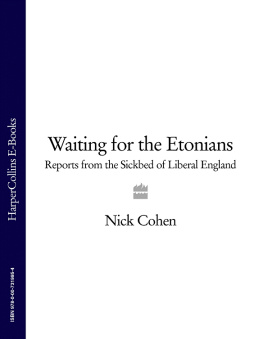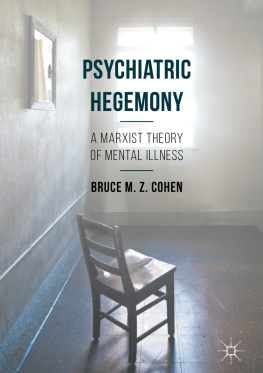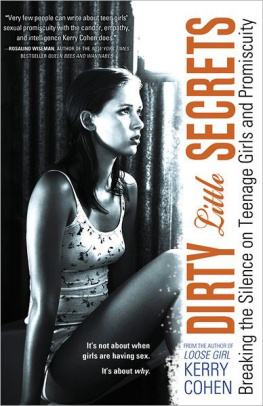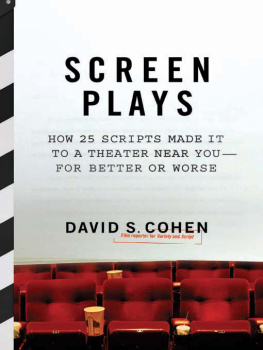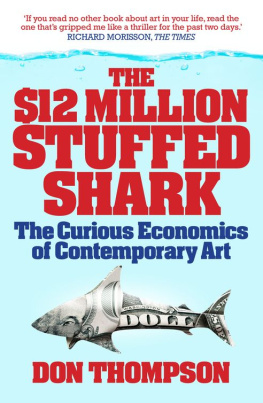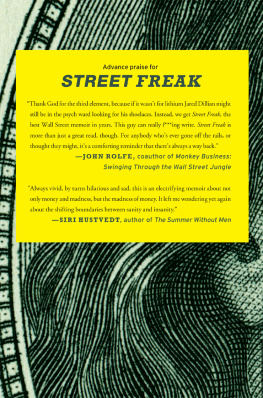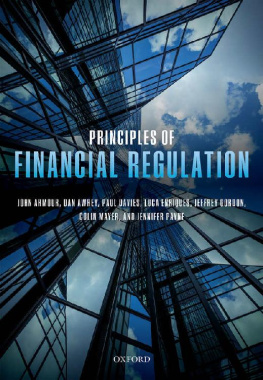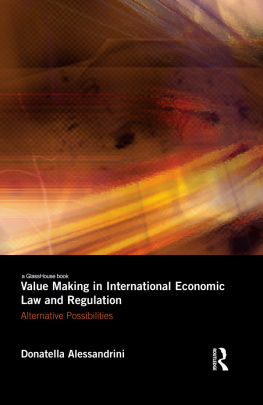Men, it has been well said, think in herds; it will be seen that they go mad in herds, while they only recover their sense slowly, and one by one.
CHARLES MACKAY , Extraordinary Popular Delusions
and the Madness of Crowds, 1841
TWO YEARS AFTER the Great Crash of 1929, the American journalist Frederick Lewis Allen looked back on the Jazz Age of the twenties as if remembering a dream. The daring flappers, abandoning their corsets and lifting their skirts far beyond any modest limitation, the swaggering investors, who expected the Big Bull Market to go on and on, ought to have been fresh in his readers minds. But Lewis knew that the bank failures and mass redundancies of the Great Depression had made the recent past utterly foreign. The optimism brought by prosperity was now as far away as a distant star. Wondering what to call his book, Allen hit on a title which was also a reminder, Only Yesterday.
After a deluge, nothing seems as remote as the day before it came. The thirties and the eighties have more to say to us now than the Britain of eighteen months ago. Across the centuries, historians of bubbles have reached for metaphors from fantasy worlds and lunatic asylums when they have tried to describe how crashes twist the linear progression of past to present out of shape. They talk of manias, lusts, fevers and delusions in make-believe lands that people take to be real until the sound of the roof falling in wakes them to face a bleak new world. Alexander Pope spoke for all sceptical historians when he wrote of the South Sea Bubble that ruined early Georgian England, they have dreamed their dream, and awakening have found nothing in their hands.
For this generation to think about what it was like before the Great Crash of 2008 will take the same mental wrench as the thirties generation needed to see back before the Great Crash of 1929. Only yesterday, level-headed young couples took mortgages of four or five times their joint incomes to buy hutch-like apartments in streets which estate agents described as up-and-coming and their friends described as scary at night. Only yesterday City dealers in nightclubs threw handfuls of notes in the air for giggling girls to catch, as waitresses marching to the theme tune from Rocky brought 500 bottles of vodka and methuselahs of champagne to their tables. Only yesterday, Her Majestys Government encouraged speculators from every part of the globe to settle in London by so under-regulating finance capital that NatWest bankers and media moguls involved in scandals as notorious as the Enron affair of 2001 and the collapse of Conrad Blacks empire in 2003 could not be brought before British courts. American prosecutors took the alleged fraudsters to the US for trial, and confessed that Britains lenient treatment of serious crimes baffled them. They did not understand that only yesterday politicians and civil servants had boasted that the Citys economy was booming because of their light-touch regulation of speculators whose number included potential swindlers. As a few of us noticed at the time, the politicians and civil servants never went on to argue that the inner-city economy might boom if the authorities applied a similarly light touch to the policing of the slums whose inhabitants included potential drug barons.
After the crash, Americans trying to find their bearings could at least hold on to the thought that George W. Bushs right-wing government presided over the bubble. As was to be expected, it did not intervene when sharks more interested in pocketing commissions than the principles of reputable lending sold millions of Americans mortgages they could not hope to repay. The Bush administration, like Herbert Hoovers Republican administration in 1929, believed that the market knew best and did not worry when financiers offered derivatives of such obscurity no one understood their risks. The conservatives neglect made ideological sense. All of the great crashes occurred under politicians who accepted laissez-faire, such as Hoover, or politicians the moneymen corrupted, such as the Georgian oligarchs of 1720 who took the bribes of the South Sea Company.
Until yesterday, that is, when Britain broke the mould. When the bubble reached its peak in the summer of 2007, Texan oilmen and former investment bankers did not govern this country. Nor were our leaders enriching themselves with bribes from the City. The British dreamed their dream under a relatively honest, social democratic government, many of whose members had been fiercely sceptical of finance capital.
Those from radical families learned the histories of the Great Crash and Great Depression at their mothers knees. At university in the seventies and early eighties, moderate leftists clutched the works of Lord Keynes and J. K. Galbraith to their breasts, while the extremists quoted Karl Marx and Antonio Gramsci.
By prejudice and well-grounded conviction, the left had always been wary of funny-money men and spivs. In 1975, while still at Edinburgh University, Gordon Brown edited TheRed Paper on Scotland, a collection of essays that dreamed of radical transformation. He endorsed the vision of the early socialists who wanted to abolish the split personality caused by peoples unequal control over their social developmentbetween mans personal and collective existenceby substituting communal co-operation for the divisive forces of competition. A better world could come only if the public accepted the necessity for social control of the institutional investors who wield enormous financial power both in fostering privilege in our social security system and in controlling the economy.
Three decades on, Gordon Brown and his Labour colleagues allowed the divisive forces of corruption and the institutional investors to engage in an orgy of speculation. For the first time in financial history, one of the great market manias that punctuate the history of capitalism was presided over by a centre-left rather than a centre-right administration. Like the most gullible investors in the Wall Street of the twenties, social democrats thought the Big Bull Market would go on and on, and did not see the crash coming.
Think back to yesterday, and you will remember that they were not alone.
THE FINANCIERS COULD no more imagine the coming disaster than the politicians. They applauded the hospitality of the Labour government, along with the tax breaks it offered foreign dealers and private-equity buyers, and went on a speculative bender.
Men go mad in herds, declared the Victorian journalist Charles Mackay, as he looked at the stock-market crashes of the eighteenth and nineteenth centuries. He might have been writing of the twenty-first. Bankers, drunk on cheap money, packaged and traded in supposedly high-yielding, mortgage-backed securities, unaware or unconcerned about the possibility that poor homeowners might default and leave them with worthless assets.
Why should anyone be anxious? The bankers said that they had spread the credit risk on the securities they sold to investors by slicing and dicing mortgages, so that good-quality loans were bundled in with riskier debts. Even if the diced borrowers had lied about their income or been bamboozled into debt by commission-hungry brokers, house prices were rising around the world, and politicians and central bankers were saying they had abolished the booms and busts of the business cycle. If individual borrowers fell ill or lost their jobs, they were entitled to sympathy, but lenders could always repossess their homes and sell them for moreoften far morethan the value of their mortgages. Property guaranteed profits.
Meritocratic theory holds that the rich are rich because of their keen intelligence and hard work. They are not the beneficiaries of inherited wealth or good luck, but deserve their fortunes. Instead of seeing the potential for catastrophic failure in the financial system they were supposedly managing, the British rich engaged in the most conspicuous consumption since the Gilded Age of the late nineteenth century. The Candy brothers became commercial celebrities for meeting the exacting requirements of the global plutocracy. In 2007, they announced that they would soon be offering properties in a development near Hyde Park, with prices ranging from 20 million for ordinary apartments to 100 million for a penthouse that the press described without exaggeration as the most expensive flat in the world. The brothers provided luxuries humanity had never known it needed beforea 360-degree memory mirror, a purified air system, a tunnel from the car park to a nearby Michelin-starred restaurant, a floor-to-ceiling fridge and a panic room (which, I admit, was prescient).

